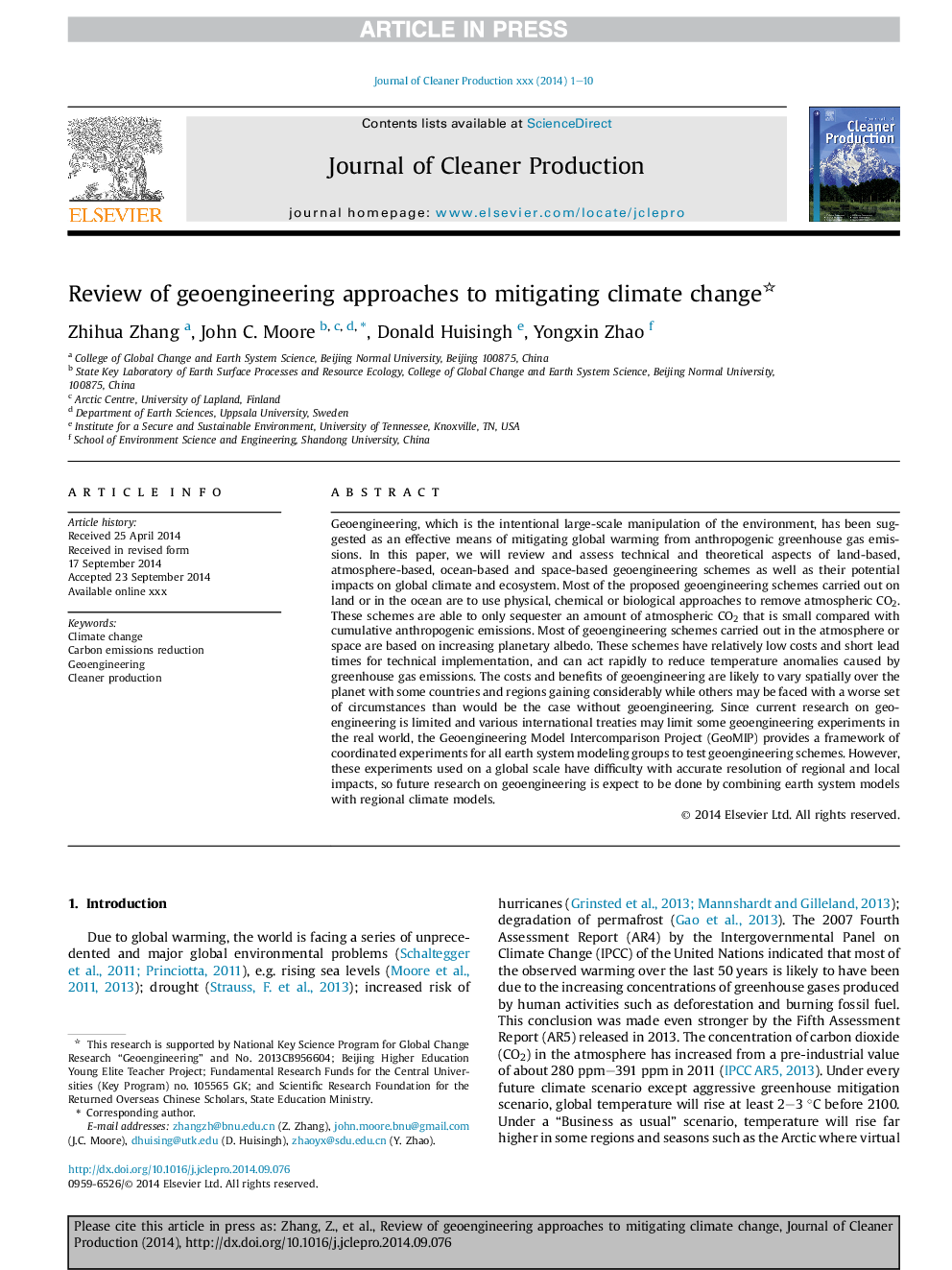| Article ID | Journal | Published Year | Pages | File Type |
|---|---|---|---|---|
| 8103715 | Journal of Cleaner Production | 2015 | 10 Pages |
Abstract
Geoengineering, which is the intentional large-scale manipulation of the environment, has been suggested as an effective means of mitigating global warming from anthropogenic greenhouse gas emissions. In this paper, we will review and assess technical and theoretical aspects of land-based, atmosphere-based, ocean-based and space-based geoengineering schemes as well as their potential impacts on global climate and ecosystem. Most of the proposed geoengineering schemes carried out on land or in the ocean are to use physical, chemical or biological approaches to remove atmospheric CO2. These schemes are able to only sequester an amount of atmospheric CO2 that is small compared with cumulative anthropogenic emissions. Most of geoengineering schemes carried out in the atmosphere or space are based on increasing planetary albedo. These schemes have relatively low costs and short lead times for technical implementation, and can act rapidly to reduce temperature anomalies caused by greenhouse gas emissions. The costs and benefits of geoengineering are likely to vary spatially over the planet with some countries and regions gaining considerably while others may be faced with a worse set of circumstances than would be the case without geoengineering. Since current research on geoengineering is limited and various international treaties may limit some geoengineering experiments in the real world, the Geoengineering Model Intercomparison Project (GeoMIP) provides a framework of coordinated experiments for all earth system modeling groups to test geoengineering schemes. However, these experiments used on a global scale have difficulty with accurate resolution of regional and local impacts, so future research on geoengineering is expect to be done by combining earth system models with regional climate models.
Related Topics
Physical Sciences and Engineering
Energy
Renewable Energy, Sustainability and the Environment
Authors
Zhihua Zhang, John C. Moore, Donald Huisingh, Yongxin Zhao,
